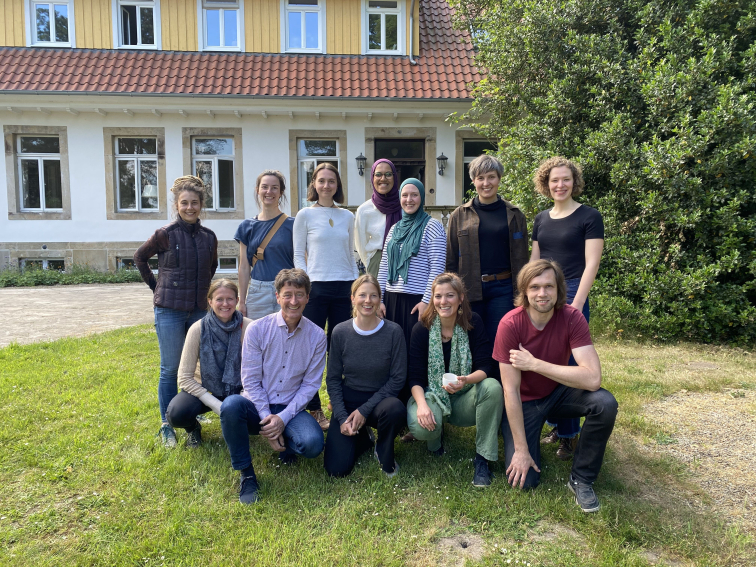Making the Future Tasty – A New Real-World Laboratory for Sustainable Transformation in Tecklenburg

Change and transformation processes, as well as multiple crises, can create to feelings of overwhelm, uncertainty, and fear – factors that can be paralyzing and exacerbate conflicts. This is where the project “Making the future tasty” comes in: In Tecklenburg, a real-world laboratory is being established that puts the municipal sustainability strategy to practice in a hands-on and inclusive way, strengthening the region’s resilience in dealing with climate change, social division, and global crises. The goal is to transform fear of the future into courage for the future and to encourage people to actively shape their own future.
The interdisciplinary and transdisciplinary project is being carried out by members of the Center of Interdisciplinary Sustainability Research (ZIN) at the University of Münster – including researchers from the Department of Information Systems.
Dr. Lea Püchel (Chair for Digital Innovation and the Public Sector) is part of the project team and, together with Prof. Dr. Sigrid Kannengießer, is responsible the future module “Sustainable Digitalization and Artificial Intelligence in Municipalities.”
In collaboration with the City of Tecklenburg, the Institute for Social-Ecological Research (ISOE), and the organic farm Wurzeln & Hörner at Haus Hülshoff, concrete solutions for a sustainable future are being developed and tested in the real-world laboratory. The focus is on collaborative learning and action among different stakeholders.
The project is part of the Innovation Hub “Socio-Ecological Sustainability” at ZIN and the European University Alliance Ulysseus, enabling regional experiences to be integrated into a European context of exchange and transfer process.
As part of the project, so-called future modules are being developed to address specific transformation challenges connected to the municipality’s sustainability strategy. These modules focus on topics such as: “Transformative Resilience – climatic, ecological, mental,” “Impacts of the food system on planetary and human health,” “Migration, (climate) displacement, and sustainability,” “Sustainable digitalization and artificial intelligence in municipalities,” and “Socially euqitable and inclusive design of energy supply in neighborhoods.”
Links to this announcement:
Center of Interdisciplinary Sustainability Research (ZIN)


